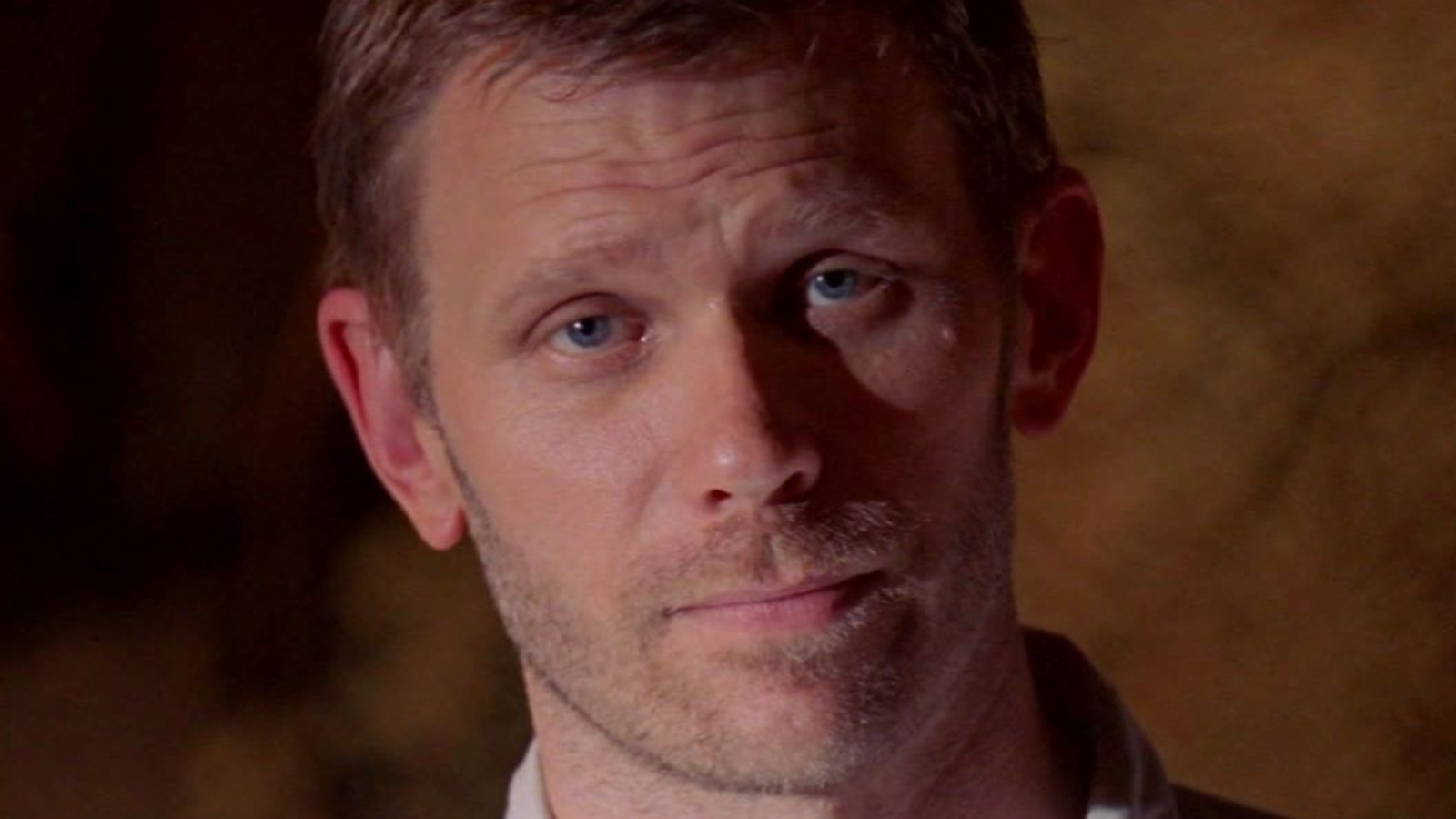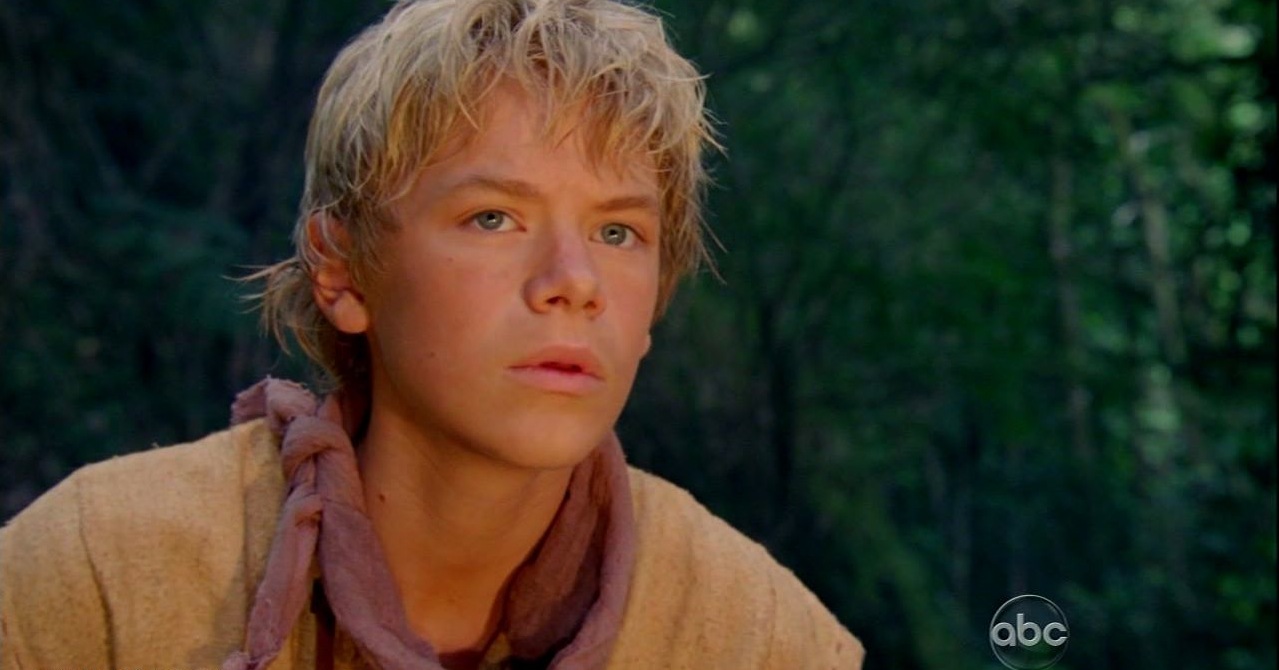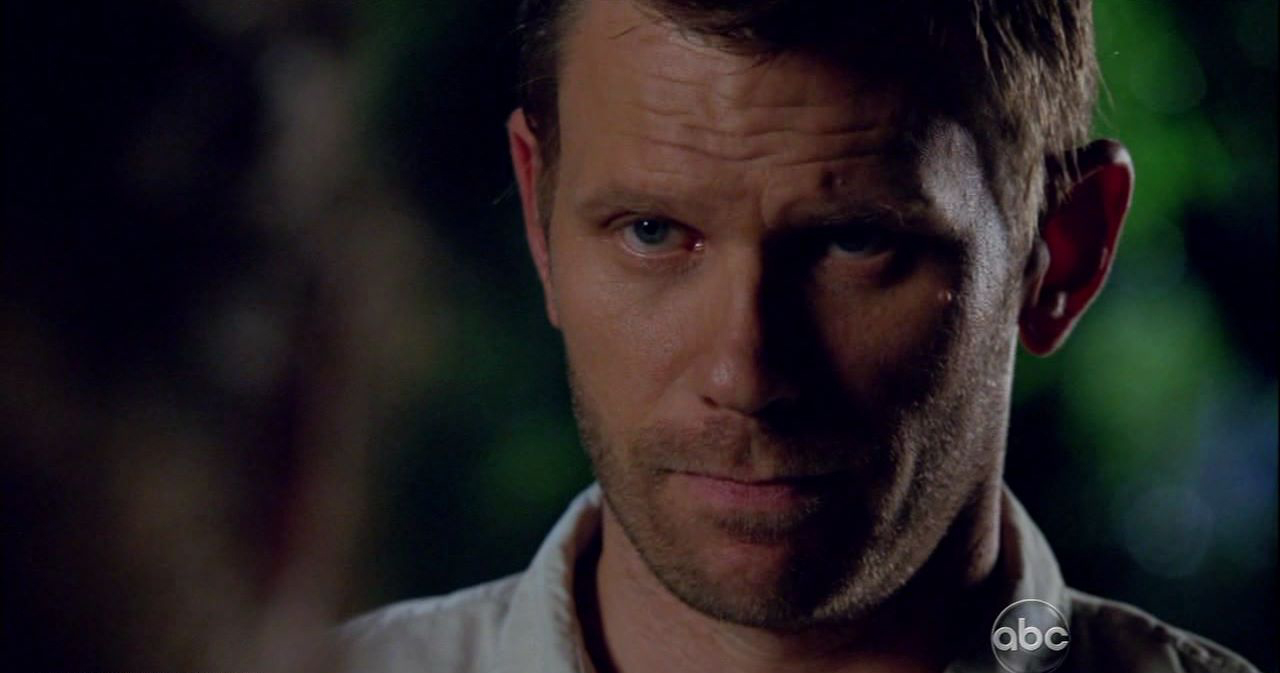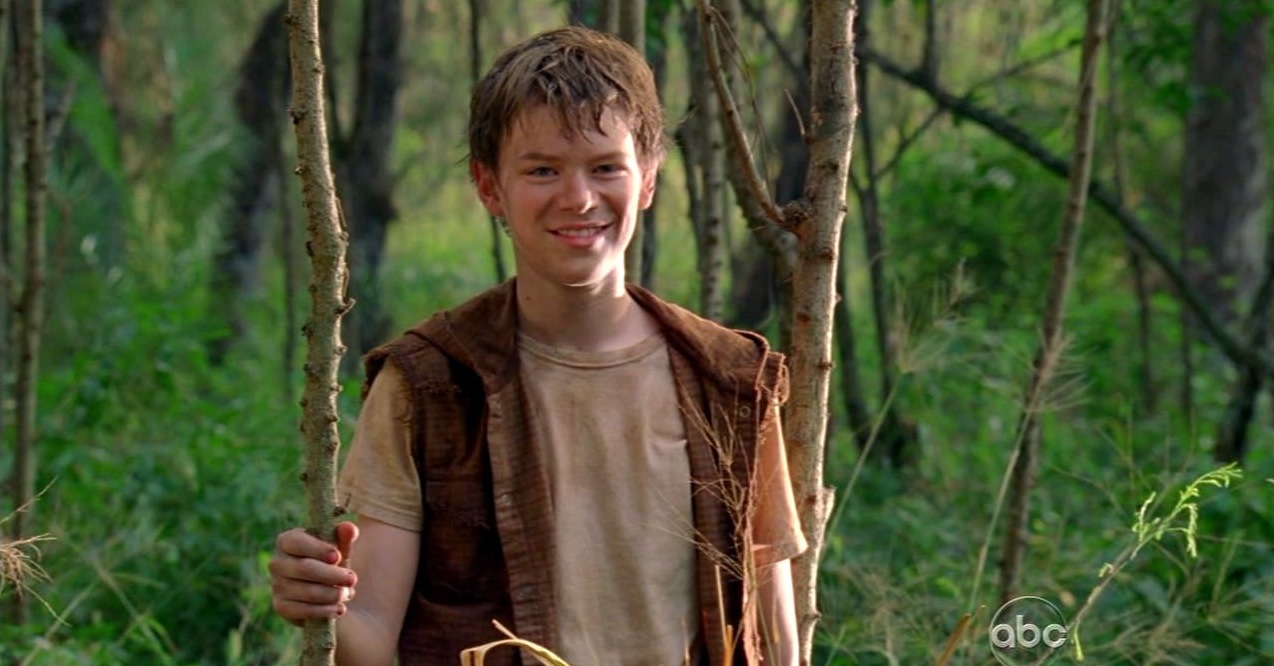Discover Lost's Jacob: Origins, Powers & Island Secrets - Unveiled!
Could a seemingly ageless figure truly shape the destiny of an island and its inhabitants for millennia? The enigmatic Jacob, a central figure in the television series "Lost," stands as a testament to the enduring power of protection, influence, and the eternal battle between good and evil.
Jacob's story, interwoven with the mystical island's secrets and the lives of its many inhabitants, is a compelling narrative that explores themes of destiny, choice, and the inherent duality of human nature. His existence, spanning over two thousand years, is a complex tapestry of unseen actions, divine planning, and the eternal struggle against his adversarial twin brother, the embodiment of darkness.
| Full Name: | Jacob (often referred to as "Him") |
| Actor: | Mark Pellegrino |
| First Appearance: | "The Incident" (Season 5 Finale) |
| Final Appearance: | "The Incident" (Season 5 Finale), although he appears as a spirit later in the series. |
| Age: | Over 2,000 years old |
| Occupation: | Protector of the Island |
| Significant Relationships: | The Man in Black (Twin Brother), Claudia (Mother), Richard Alpert (Confidante/Advisor), The Candidates (Those he deemed potential successors) |
| Key Characteristics: | Ageless, possesses supernatural abilities, deeply connected to the Island's energy, brings people to the Island, and influences their lives, representing life and good. |
| Cause of Death: | Stabbed by Ben Linus, orchestrated by the Man in Black (in the guise of John Locke). |
| Origin: | Born on the Island with his twin brother. Their mother, Claudia, arrived on the Island after a shipwreck. |
| Powers/Abilities: | Appears to be immortal (though vulnerable to certain types of harm), able to influence events, and bring people to the Island, can seemingly see the future or influence outcomes, possibly telekinesis and other undefined powers. |
| Motivations: | To protect the Island and its light from his brother (the Man in Black) and the destructive forces his brother represents. To find a worthy successor to continue the protection of the Island. |
| Weaknesses: | Vulnerable to physical harm, his role seems to rely on the balance of good and evil, his influence is not absolute, and his choices can have unforeseen consequences. |
| Reference: | Lostpedia - Jacob |
Born with his twin brother on the island, Jacob's existence became intrinsically linked to its fate. While the specifics of his birth and early life remain shrouded in mystery, the narrative consistently presents him as the protector, the guardian of a sacred and powerful place. The island itself, with its unique properties and mystical energies, is far more than just a geographical location. It acts as a microcosm, reflecting the eternal conflict between light and darkness, good and evil, a battle Jacob was destined to be a part of.
Jacob's influence extends beyond simply residing on the island. He possesses a unique ability to bring people to the island, orchestrating events and subtly influencing their destinies. These individuals, many of whom were survivors of Oceanic Flight 815, become pawns in his grand, often inscrutable, design. He carefully observes them, tests them, and, ultimately, chooses from among them a successor to his role as protector. This succession process is a crucial element in the overarching narrative of "Lost," revealing the criteria by which Jacob judges individuals and the qualities he deems necessary to safeguard the island's balance.
The selection of these candidates is a complex process, and the series meticulously explores the reasons why certain individuals are chosen and, conversely, why others are ultimately deemed unsuitable. Eighteen of the main characters throughout the series were considered at one point or another. The reasons they were crossed off of Jacob's list were varied.
| Candidate | Reason for Elimination |
|---|---|
| Jack Shephard | Ultimately chosen as the successor, Jacks willingness to sacrifice himself for the greater good, his leadership qualities, and his deep sense of responsibility make him the final choice. |
| Kate Austen | Initially considered due to her ability to survive, but her inability to relinquish her self-destructive tendencies ultimately disqualified her. |
| James "Sawyer" Ford | Sawyers inherent cynicism and tendency towards revenge. Though he displays moments of selflessness, his past continues to haunt him. |
| John Locke | Locke's strong faith and connection to the island were compelling, however he was manipulated by the Man in Black and betrayed Jacob. |
| Hugo "Hurley" Reyes | His inherent goodness, loyalty, and ability to bring people together. He would become the new protector, Hurley's good nature and ability to mediate the needs of others. |
| Sayid Jarrah | Sayids past as a torturer, and his violent tendencies made him unsuitable. |
| Sun-Hwa Kwon | Sun, like her husband, possessed a strong moral compass. The show also gave her a connection to the island. |
| Jin-Soo Kwon | Jins loyalty and willingness to do what was necessary, his devotion to his wife were admirable but not enough for the role. |
| Desmond Hume | His unique ability to withstand the island's powers, but his strong desire to be with Penny. |
| Ben Linus | Bens manipulative nature and willingness to betray others. He was eventually chosen by the Man in Black (disguised as Locke) to kill Jacob. |
| Claire Littleton | Claires emotional instability and vulnerability. |
| Charlie Pace | Charlies addictive personality and the sacrifices he made. |
| Juliet Burke | Juliets intelligence, empathy, and understanding. |
| Richard Alpert | Richard had been serving as Jacob's advisor and intermediary for a very long time, acting as one of his main liaisons. |
| Penny Widmore | She does not appear to have been a candidate to succeed Jacob in the traditional sense, but she did become extremely important to the events occurring on the island. |
| Frank Lapidus | Frank was never explicitly named as a candidate in the series, but, because of his good qualities and loyalty, he could have been a suitable replacement. |
| Michael Dawson | Michael was never explicitly named as a candidate in the series, but his history on the island caused a negative impact on the story. |
| Ana Lucia Cortez | Ana Lucia Cortez was a survivor and a police officer before coming to the island. Her experience with the island makes her a worthy candidate. |
| Daniel Faraday | Daniel Faraday, with all his knowledge, was not a suitable candidate. His scientific knowledge made him useful, but it was not what Jacob was looking for. |
Jacob's brother, the man in black, stands as the ultimate antagonist. He is the embodiment of darkness, a force determined to escape the island and unleash chaos upon the world. The two brothers represent the fundamental dichotomy of good and evil, life and death, light and shadow. Their conflict is not merely a personal one; it is a cosmic struggle with the fate of the world hanging in the balance. The man in black seeks to destroy the island's light, believing that its destruction will free him and end his eternal imprisonment. Jacob, conversely, is committed to protecting the light, understanding that its preservation is essential to maintaining balance and preventing the world's destruction.
The nature of the island itself is a pivotal element in this conflict. It possesses mystical properties, including the ability to heal, affect time, and even hold back a destructive force that threatens to consume the planet. Jacob views the island as a "cork" holding back this force, and his role as protector is directly tied to maintaining this containment. The island's power is inextricably linked to the struggle between the brothers, and its fate is directly dependent on the outcome of their eternal conflict.
The finale of "Lost" provides a resolution to the central mythology, revealing the origins of the brothers and the true nature of their conflict. The resolution, however, is often misunderstood, due to the complex nature of the themes explored throughout the series. The final episode confirms that the balance between good and evil, represented by Jacob and the man in black, is essential. When Jacob is killed, the man in black is able to fully realize his potential, but ultimately, he is defeated through the sacrifice of Jack Shephard, the chosen successor. The island's light is protected and the world is saved, but only at a great cost.
Mark Pellegrino, the actor who portrayed Jacob, brought a sense of mystery and gravitas to the role. His performance captured the character's ageless wisdom, subtle influence, and the burden of his eternal task. Pellegrino's portrayal helped shape Jacob into an unforgettable figure, pivotal to the understanding of "Lost"'s complex plot. In addition to "Lost," Pellegrino has appeared in numerous other television shows and films, demonstrating his versatility as an actor.
Beyond the immediate conflict of the brothers, Jacob's role underscores the broader themes of free will, destiny, and the inherent duality of the human condition. His actions raise questions about the extent to which individuals are truly in control of their lives, and the impact of external forces on their choices. The series explores the tension between Jacobs divine plan and the agency of the characters. Are they free to make their own choices, or are their lives predetermined by Jacob's will? This tension is a central element in the narrative, and it allows the show to delve into profound philosophical questions about the nature of existence.
Jacob's legacy in "Lost" extends far beyond his death. His influence continues to resonate throughout the series, shaping the actions of the remaining characters and driving the narrative towards its ultimate conclusion. The themes he embodiesthe struggle between good and evil, the importance of choice, and the eternal cycle of life and deathremain central to the show's enduring appeal. His role as the protector, the unseen hand guiding the destinies of those on the island, leaves a lasting impact on viewers long after the series finale.
The events surrounding Jacob's death in 2007, orchestrated by the man in black through Ben Linus, represent a turning point in the series. With Jacob's demise, the balance on the island shifts, and the consequences are dire. The man in black gains the ability to assume the form of the deceased and manipulates events to further his own destructive ends. This leads to a desperate struggle to prevent the island's destruction and to find a suitable replacement for Jacob, a character who can restore order and protect the island's light.
The show also explores the origins of Jacobs character. The series reveals that Jacob, along with his brother, was born on the island, the product of a mysterious and powerful force that binds him to the island's energy. His mother, Claudia, represents another layer of the shows mysteries. The nature of the island, the origin of its inhabitants, and the motives of both Jacob and the man in black are all essential to understanding the show's final resolution. It is through these explorations that "Lost" delves into a complex tapestry of character relationships and plot twists. Ultimately, the struggle between Jacob and his brother serves as a reflection of the human condition: the perpetual battle between good and evil that defines our world.
As "Lost" unfolds, the audience is brought to an island, which is a symbolic reference to paradise. This island, with its many secrets, its mystical properties, and its inhabitants, allows the show to explore universal themes in a unique and compelling way. The struggle between Jacob and the man in black becomes a microcosm of the human condition, highlighting the choices, sacrifices, and relationships that define our lives. The conclusion, though complex and open to interpretation, underlines the importance of balance, choice, and the enduring power of good. It is a testament to the vision of the shows creators and the compelling portrayal of Jacob, the enigmatic protector, whose influence shapes the very fabric of "Lost."



